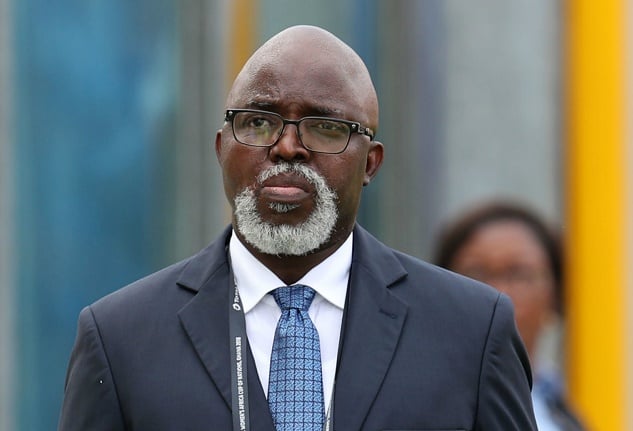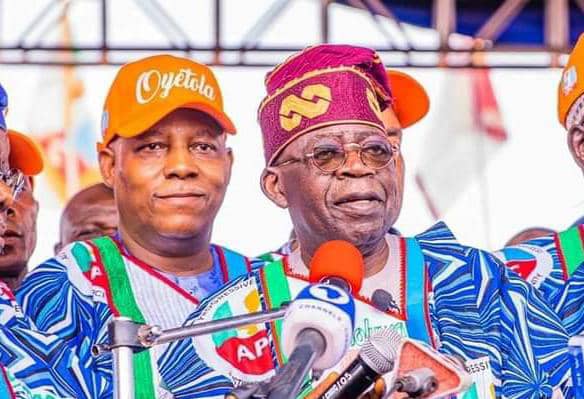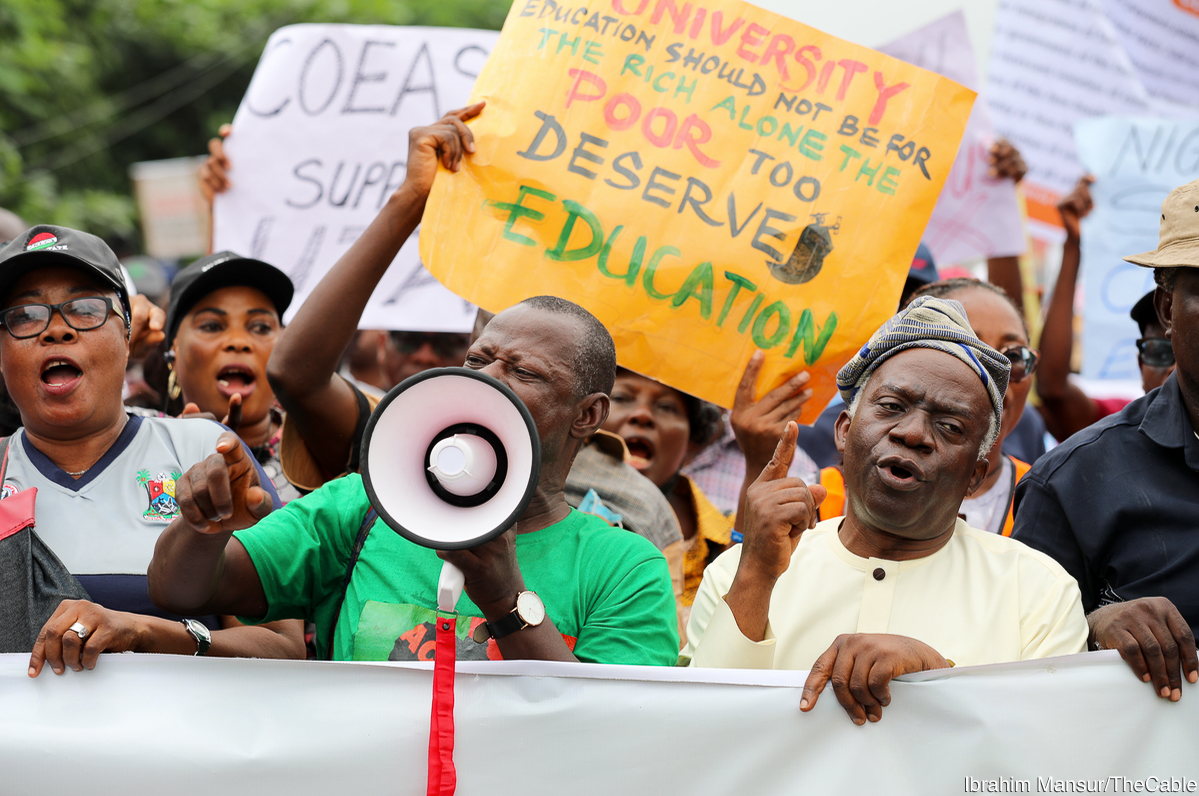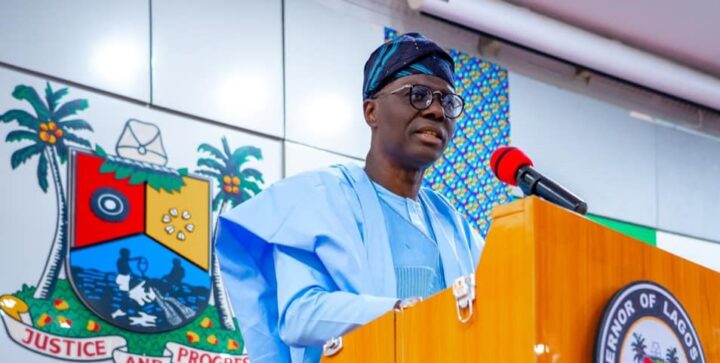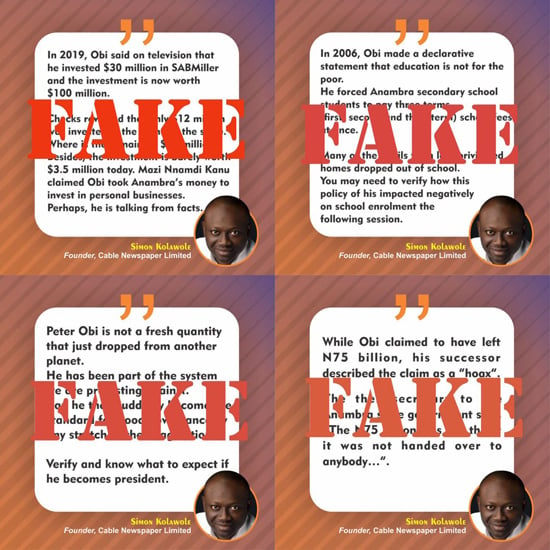These days, Nigerians are so bogged down with the drudgery of daily living, they fail to acknowledge, not to speak about applauding the good things about themselves.
It is hard to blame anyone. Even though things have never been too great with Nigeria, they have not ever been this bad. Perhaps, except for the 30-year civil war that Nigerians fought between 1967-1970, (which most of the current population did not witness), hardship has never been as widespread and debilitating as currently. And what’s worse? Politicians who Nigerians voted to chart the path to recovery are themselves at their wit’s end, confused about what to do, and leading the nation deeper into the wilderness. Increasing costs of living, massive unemployment and pervasive insecurity are some afflictions with which everyone, rich or poor, young or old, now grapple with. It looks so dark and hopeless.
Yet, there are a few inspiring stories from amongst us. Consider the exploits of our sports persons, or the conquests of youthful singers and music makers of Nigerian extraction, for example. We should also often think about the splinters of credit and honour that performing homegrown businesses bring to the country.
For instance, while the conduct of the political class attracts opprobrium, enough for every Nigerian to have a share, companies like telecom giant Globacom, which turns 19 this week, validate Nigeria’s big brother status on the continent.
Advertisement
The company is the second-largest telecom operator with over 55m subscribers at home alright, but it has within these 19 years made inroads into other African countries like Ghana and the Benin Republic. While business laws in these countries govern Globacom’s operations, its Nigerian origin establishes the country’s legendary pre-eminence in Africa. This is something that years of bad governance have put a dent on and diminished. And if one is mindful of the character of the Globacom brand at home, it wouldn’t be difficult to conclude that it must be a responsible corporate citizen in the diaspora.
The company set itself apart as a protector of the people’s interests from the outset. During its launch at the end of August 2003, Globacom did two things that will remain indelible in the history of mobile telephony in Nigeria. Before that day, precursor operators charged consumers for their services by the minute. They did not just ignore all agitations for introducing per-second billing for mobile phones; they said it was not possible. Then, Globacom came and turned the impossible around by introducing per-second billing!
The disruption didn’t end there. Another phenomenal event happened. Despite its usefulness, since Nigeria launched that generation of the Global System for Mobile Communications (GSM) in 2001, it remained out of the reach of most Nigerians until Glo became a factor in the industry two years later.
Advertisement
Why? Operators sold every Subscriber Identity Module card, otherwise known as SIM card, for an incredible N15,000! But this changed with Globacom’s arrival as the company announced that it would sell its SIM card at the giveaway price of N100. It was at this stage that Nigerians of all cadre could contemplate the possibility of owning their own handset. This price slash was the actual point that Nigeria liberalised mobile telephony. This was the same feat the company achieved with the Glo-1 submarine cable. The 9,800 km long cable from the United Kingdom runs along the West African coast, becoming a decisive fundamental changemaker in Africa’s race onto the information superhighway.
In addressing the frightening levels of unemployment in the country, informed Nigerians express surprise at the government’s inability to tap into the abundant opportunities in Nigeria’s creative sector.
Here again, Globacom, like a few other companies, has done Nigeria well. The company was the first to recognize and explore the potential of Nigerian creative talents as brand ambassadors for companies in the telecoms sector. This brand ambassador initiative affected the music and film sub-sectors in boundless measures and dimensions. The support from Globacom nurtured the careers of many creatives allowing them to bloom, it served as a brace for the careers of some and was a lifeline, rekindling hope in many others. The list across generations of actors, comedians and musicians include Dbanj, PSquare, Bright Okpocha (Basketmouth) Ibidun Alisson (Amebo), Abiola Atanda (Madam Kofo), Chika Okpala (Zebrudaya), Nelly Uchendu, Bright Chimezie, Bimbo Oloyede, Femi Jarret, Victor Uwaifo, Segun Odegbami, Lagbaja, King Sunny Ade, Teni and Simi, Samuel Perry (Broda Shaggy) Wasiu Alabi Pasuma and Michael Ajereh.
Apart from boosting the profile of artistes by appointing them as brand ambassadors, the company has also done a lot to foster the discovery of talents in the country. Over the years, Globacom has supported talent hunt projects like Glo Naija Sings, Dance with Peter, Glo X-factor and flagship shows like Glo Laftafest, Glo Campus Storm and Glo Music Fiesta.
Advertisement
This year, the company took up the sponsorship of the Battle of the Year dance reality show, ten years after it started running. For this tenth edition, the show progressed into an empowerment tool for discovering talents and bountifully rewarding these talents with money. Winners of the competition will represent the country at the International Battle of the Year competition in Japan.
There is also a very important intervention directed at promoting and preserving the arts, culture, traditions and traditional values of the people of Nigeria. Successive administrations including the present one have made promises about diversifying the country’s economy. Tourism seemed like low-hanging fruit that government could focus on and revamp. There can be no overemphasizing the country’s blessings in this area, but even as this government completes its second tenure in a few months, Nigeria is not closer to tapping into the huge potential of this sector than it was in 2015.
But we have had Globacom pick the gauntlet by taking up the sponsorship and spearheading, the celebration of three major festivals across the country. There is the cultural and exuberant spectacle of sound and colour of Ijebu-Ode’s annual Ojude Oba festival; there is the Lisabi festival in Abeokuta, Ogun State and the Ofala festival of the people of Onitsha in Anambra State. Once, every year, Globacom joins indigenes of these communities, their friends and tourists from across the globe to celebrate Nigerian Culture and tradition.
So, despite the inefficiency of the government, Globacom and many companies like it give us reasons to celebrate. Regardless of the harsh business environment, Globacom has continuously placed a premium on the customer over the past 19 years. And beyond the customer, the company, which is said to employ about 4,000 people, brings pride to Nigeria, seeks the good of its people and prepares the youths for the competitive future that this world promises to be. It is worthwhile to relieve ourselves of the pain that governance has become in Nigeria by pausing to celebrate private entities, which put smiles on the face of our compatriots.
Advertisement
Views expressed by contributors are strictly personal and not of TheCable.


